#please read the whole article
Explore tagged Tumblr posts
Text
this whole article on fic, fandom, and the decoupling of writing, fan, and community with the increase in ai slop, or with fanfic readers increasingly not interacting with fandom or fic writing even as readership swells, is worth reading. but this passage haunts me:
As market forces loomed over fic in 2024, I thought of one of Alex Norris’s most famous “oh no” comics, in which a minority creates a space for themselves, the majority crowds into it, and then attempts to eject the minority in turn. OK, maybe “ejection” is a bit strong; “fic writer” is not a marginalized identity, and neither big publishing nor the AI Grifter of the Week are stopping me from writing my X-Men fanfiction. But what fic will become in the years ahead remains an open question—and it increasingly feels like fans get less and less of a say.
I will never stop writing fic (it just never ends up published these days) but this puts to words what I have been thinking about for the last year or so
15 notes
·
View notes
Text
3 notes
·
View notes
Text
100 small acts of love by The New York Times 💌
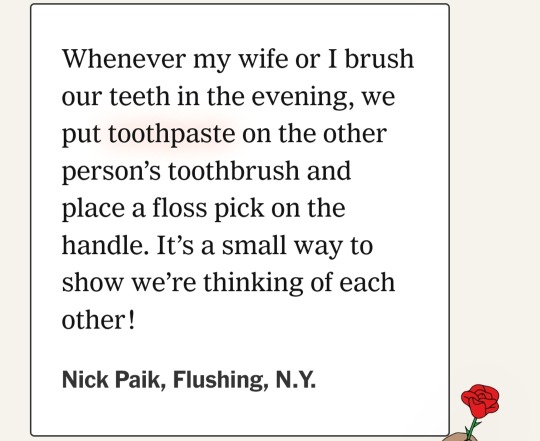
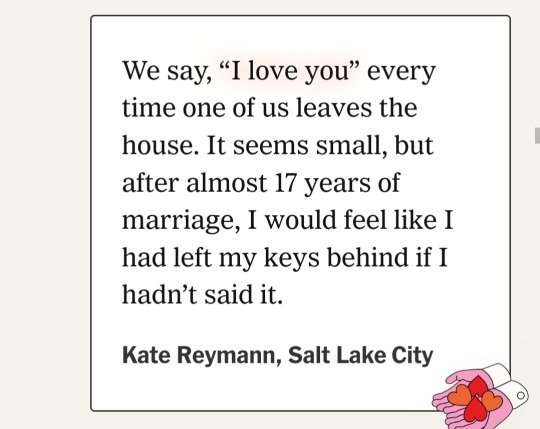

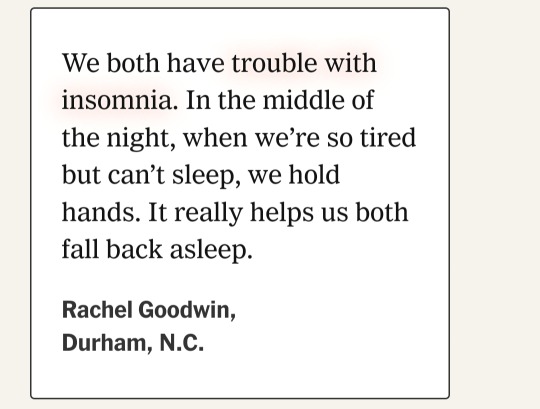
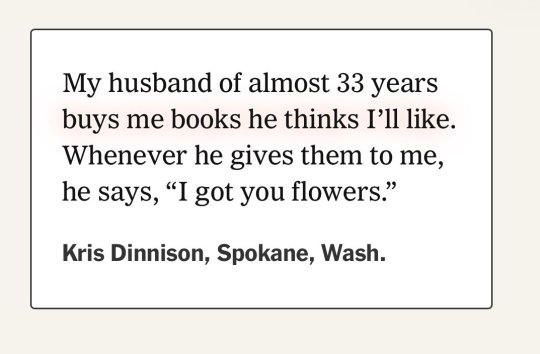
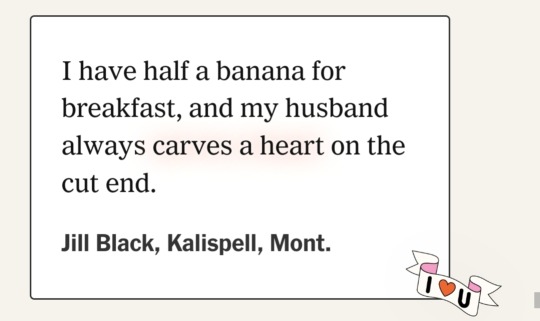
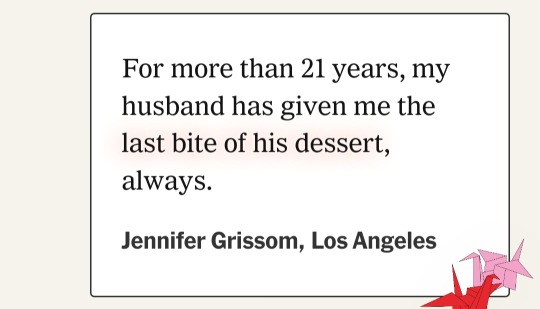
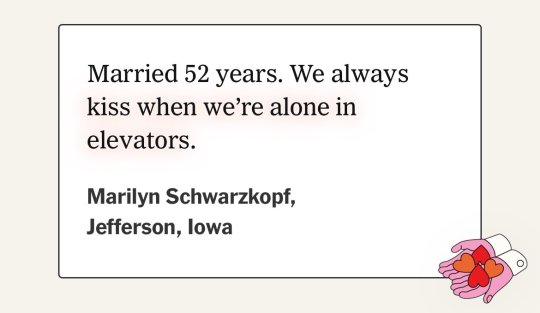
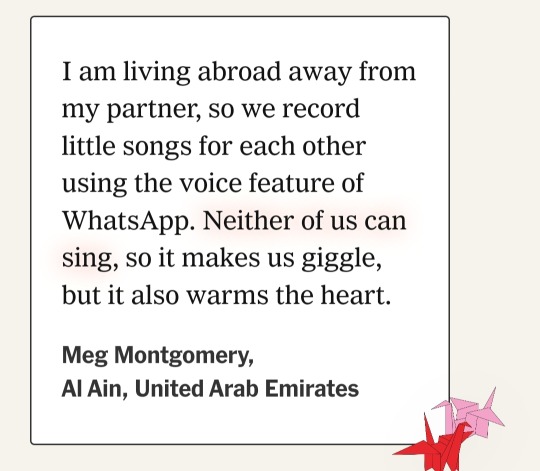
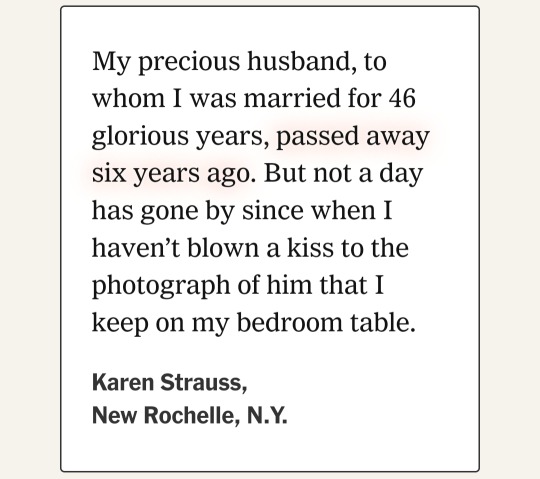
12K notes
·
View notes
Text
The Zionist end game in the West Bank is upon us. The last eleven months leave little room for doubt as settlers continue to actively depopulate Palestinian communities, kidnapping and torturing young men and establishing new colonies. Israeli National Security Minister Itamar Ben-Gvir openly boasts about seeking to build a synagogue on top of the al-Aqsa Mosque compound.
None of this should be understood as a new phase of Zionist settler colonialism; rather it is its sharpening, its coming out into the open in a more brazen way. What is happening in Gaza can and will happen elsewhere in Palestine. Not because the contexts or conditions are identical, but because they stem from the same supremacist logic and system of colonial domination.
It is a mistake to believe that a ceasefire, regardless of its form, will put the genie back into its bottle. We will not go back to the pre-October 7 status quo and move on with our lives until the next time Gaza is bombed. If anything, October 7 showed how completely unprepared the West Bank is for what is coming, partly due to stubborn self-deception nurtured over the last three decades: the idea that there can be any semblance of normal life under occupation in return for obedience.
September 12, 2024
#palestine#west bank#article#from 2024#important#guerilla#resistance#please read this#read the whole article
721 notes
·
View notes
Text
BANGER new sheng peng article just dropped. as someone who’s a nerd for the game, this was like a four course meal for me. enjoy some of my personal favorite handpicked quotes under the cut
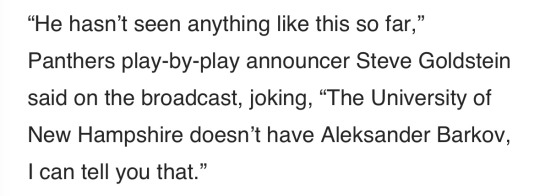
i am a UNH hater this hit the spot for me

sheng peng your silly shark references are poetry that touches my soul
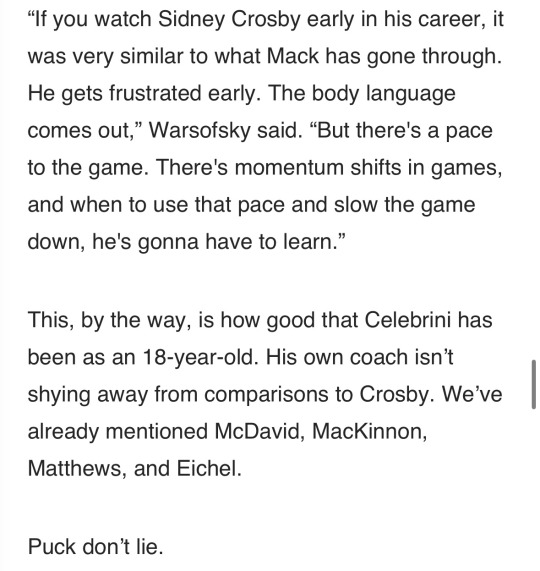
this is crazy. This is crazy. THIS IS CRAZY. THE NARRATIVES!!!
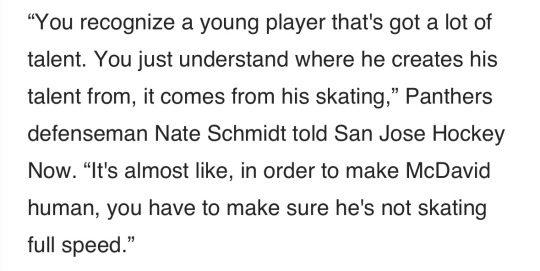
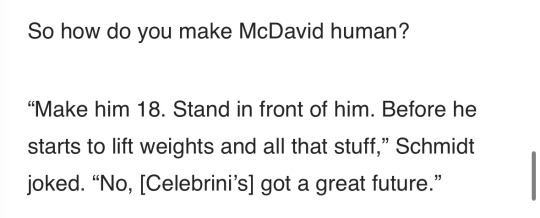
the other players are officially on notice. i have no more restraint to calling him generational after this article. the old men can argue with me on twitter all they want but hes already earned that title from his peers. sorry for the long ass post. i just have been defending him for months against the “hes amazing not generational” argument and ive finally WON!!!
#macklin celebrini#sharks lb#IM GOING FUCKING INSANE#please read the whole article this is only scratching the surface#san jose sharks#nhl#hockey
47 notes
·
View notes
Text
brb, just crying over this article about rusty 🥹
“He's an honest player who brings an honest effort every game. You know what you're going to get from him,” head coach Mike Sullivan said. “He plays on both sides of the puck, he plays in every situation. He made his mark in the league being a penalty killer and a checker, and he's evolved offensively to the point where he's a 20-plus goal scorer. So, for me, he's just a complete player. He's a Stanley Cup champion. He's been here a long time.”
- - -
“My brother was this hockey stud, and my entire life, I was always Little Rust,” Bryan said.
Bryan chose to join the Fighting Irish in hopes of starting to make his own way in the hockey world, with his brother Matt – who is three years older – playing at Michigan.
- - -
“I think he was able to find a different motor and new level of commitment and belief in himself and for his own game,” Matt said. “I think what was unique about that point in time for us both, after reflecting on it a little more, was the ability for us to learn some things together. I think he took some wisdom away from, frankly, how it all played out for me. And I’m proud of that. It’s a great story, right? It comes full circle. Little Rust doesn't just carry the torch, he is the torch.”
- - -
“I think the proudest thing that I carry with me in the larger Bryan Rust saga, if you will, is just who he is as a person. He's a good man,” Matt said. “He loves his family, he loves his teammates, he loves the game. He just does things the right way, no shortcuts. There isn’t a position or a role on that team he is too big for. In my opinion, that’s what it’s all about. He loves being in Pittsburgh. He's really proud he's been able to grow into his career and be a part of that organization.”
#little rust#😭😭😭#bryan rust#pittsburgh penguins#he works so hard#I like when that gets recognised!#<333#please go read the whole thing#rusty#sully#matt rust#penguins#articles
44 notes
·
View notes
Text
y'all go from being feminists to tearing these women down within seconds oh my god it's 2024 can we please stop viciously tearing one woman down to bring another up i don't care what side you take but saying vile shit about either woman and their music is disgusting, please grow up
#seperate the art from the artist please oh my god#for the record i like both billie and taylor#the variants being a major thing but i know thats not to hurt billie like yall say its it's to get more money (which she doesn't need????)#like let people have opinions oh my god its not that deep#and some of yall (not naming names yk who you are) went from loving billies new album to saying the most vile shit within a second which is#+shallow as fuck please learn to separate the art from the artist#you're allowed to dislike someones music but dragging them down as a person is shameful and not something to be proud of#and some of the shit ive seen said recently is disgusting please think before you speak#and ill be honest the swifties are saying most of the horrible stuff#i love taylor as much as you guys but it is not an excuse to say disgusting shit about other women please find something better to do+#+with your time#most of my mutuals are swifties but tbh if youre offended by me saying not to drag women down then i don't want you following me anyways#luc posts#billie eilish#taylor swift#i will not rant about my hatred for the variants and consumerism thats a post for another day#also have yall considered that this whole argument thing is pr so they can both get more streams. bc uh that was my first thought ngl#edit like 10 minutes later: i read an article and yall are blowing shit out of proportion it is literally not that deep omg
88 notes
·
View notes
Text
*excerpts below — but I highly recommend reading the full article in link above*
Hit Me Hard and Soft dunks us headfirst back into that universe, from the deepest wallows of depression to the exhaustion that comes with the world speculating about her every move. There are no arachnids where they shouldn’t be, but getting in touch with her darker side has Eilish finally feeling like herself again. “I feel like this album is me,” she says. “It’s not a character. It feels like the When We All Fall Asleep, Where Do We Go? version of me. It feels like my youth and who I was as a kid.”
Although 2019 felt like a whirlwind of madness at the time, she has found herself missing it. “It was the best time of my life,” she says. “This whole process has felt like I’m coming back to the girl that I was. I’ve been grieving her. I’ve been looking for her in everything, and it’s almost like she got drowned by the world and the media. I don’t remember when she went away.”
The title Hit Me Hard and Soft derives from a conversation she had with Finneas, when she mistakenly thought the name of a synth in Logic Pro was called Hit Me Hard and Soft. “I thought it was such a perfect encapsulation of what this album does,” she explains. “It’s an impossible request: You can’t be hit hard and soft. You can’t do anything hard and soft at the same time. I’m a pretty extremist person, and I really like when things are really intense physically, but I also love when things are very tender and sweet. I want two things at once. So I thought that was a really good way to describe me, and I love that it’s not possible.”
Eilish and Finneas call Hit Me Hard and Soft “an album-ass album.” It’s not a concept record, but it is a self-consciously cohesive set of songs, inspired by auteurist works from the past 15 years or so, like Coldplay’s Viva La Vida, Lana Del Rey’s Born to Die, Tyler, the Creator’s Goblin, Marina and the Diamonds’ Electra Heart, and Vince Staples’ Big Fish Theory.
“Lunch,” a complete 180 in both sound and subject content. It’s a sexy, bass-heavy banger where Eilish is crushing on a girl so hard she likens sex with her to devouring a meal. Finneas remembers playing this moment for Interscope and witnessing the team shift in their seats. “What’s funny about starting the album with [the opener] is that it is a total false promise,” he says. “If you’re remembering ‘What Was I Made For?’ and then you hear [it], you go, ‘Oh, OK. I understand this world.’ Then the drums come in [on “Lunch”], and it really is the kill-the-main-character-type beat. It’s like Drew Barrymore being in the first five minutes of Scream and then they kill her. You’re like, ‘They can’t kill Drew. Oh, my God, they killed Drew!’”
Eilish and I spend a lot of time talking about the new era she is about to kick off, and how she’ll promote Hit Me Hard and Soft while prioritizing her mental health, privacy, and well-being. With all of that in mind, I wonder if she’s ready for journalists to pepper her with questions about the album’s subject matter, particularly the sexual nature of “Lunch.” “That song was actually part of what helped me become who I am, to be real,” Eilish says. “I wrote some of it before even doing anything with a girl, and then wrote the rest after. I’ve been in love with girls for my whole life, but I just didn’t understand — until, last year, I realized I wanted my face in a vagina. I was never planning on talking about my sexuality ever, in a million years. It’s really frustrating to me that it came up.”
Eilish is referring to her interview with Variety last fall, in which she mentioned she was attracted to women. The quote — “I’m attracted to them for real” — became a national headline. The following month, Eilish attended Variety’s Hitmakers event in L.A. While on the red carpet, she was asked if she intentionally came out in the story. “No, I didn’t,” she told them. “But I kind of thought, ‘Wasn’t it obvious?’” Eilish then posted about it on Instagram, with a caption that read, “Thanks Variety for my award and for also outing me on a red carpet at 11 a.m. instead of talking about anything else that matters. I like boys and girls leave me alone about it please literally who cares.”
Looking back, Eilish admits she overreacted with the Instagram post. “Who fucking cares?” she says. “The whole world suddenly decided who I was, and I didn’t get to say anything or control any of it. Nobody should be pressured into being one thing or the other, and I think that there’s a lot of wanting labels all over the place. Dude, I’ve known people that don’t know their sexuality, or feel comfortable with it, until they’re in their forties, fifties, sixties. It takes a while to find yourself, and I think it’s really unfair, the way that the internet bullies you into talking about who you are and what you are.”
As for that red-carpet quote that made all the headlines, Eilish says she tried to think of a response that would be entertaining for her fans and the internet. “I went into Billie Eilish interview mode, [like], ‘Oh, I don’t care. Yeah, I’ll say whatever. Wasn’t it obvious?’” she says. “And then afterwards I was like, ‘Wait. It wasn’t obvious to me.’”
Thinking about it now, she draws a bigger lesson from that moment. “I know everybody’s been thinking this about me for years and years, but I’m only figuring out myself now,” she says. “And honestly, what I said was funny, because I really was just saying what they’ve all been saying.” She adds that she liked the journalist she was talking to and didn’t want to be rude. But she still felt exploited. “Bro, I have asthma out here,” she says. “I fucking can’t take a breath.”
If Eilish had the opportunity to do it over again on the red carpet, she says, she wouldn’t have answered the question. But she acknowledges it could have been worse. “I’m lucky enough to be in a time when I’m able to say something like that and things go OK for me,” she says. “And that’s not how a lot of people’s experience is.”
Eilish has officially decided to make some changes to the way she presents herself to the world. “This album, to me, feels like a way to restart, in terms of my sharing,” she says. So let’s take a second to reintroduce Billie Eilish, the home-schooled bohemian who captured our attention as a teenager. She’s 22 now, yet she’s more self-aware than people twice her age. She would like some space to grow, to figure out exactly who she is — no label required. She is not the poster child for anything. And she is not, she’d like to note, a TED Talk speaker. So where does that leave us? Eilish sums things up with four simple words that point to her desire for normalcy and acceptance.
“I’m just a girl.”
25 notes
·
View notes
Text
I think critical thinking should be compulsory in schools and universities. Wdym you’re accepting a snippet of a news article as reality???? Please go to the source and read the whole article 😭 and read from a reputable site !! And read multiple articles about the subject. It’s so easy to get absorbed in fear mongering but please pause and use the critical part of your brain. There are so many books/studies to lean into and while academia is sadly not accessible to all, pls question the information you’re internalising.
#btw this isn’t about anything to do w Palestine that is a completely diff thing but I just mean my mum sent me a snippet of an article about#a dangerous chemical in porridge and I read the whole article and the study was so small#and the original study was based in the US not the UK! though at the bottom of the article#there were traces of this harmful chemical found in the UK.#but someone screenshotted that section and just circulated it on WhatsApp#pLEASE MUM UR CONCERNING ME
22 notes
·
View notes
Text
"Journalists and politicians call it war. The informed and honest call it genocide.
What I see is a holocaust – the incomprehensible culmination of 75 years of Israeli impunity for persistent war crimes.
Rafah is the southernmost part of Gaza, where Israel crammed 1.4 million people into a space the size of London’s Heathrow Airport.
Water, food, electricity, fuel and supplies are scarce. Children are without school – their classrooms having been turned into makeshift shelters for tens of thousands of families.
Nearly every inch of previously empty space is now occupied by a flimsy tent sheltering a family.
There are barely any trees left, as people have been forced to cut them down for firewood.
I didn’t register the absence of greenery until I happened upon a red bougainvillea. Its flowers were dusty and alone in a deflowered world, but still alive.
The incongruity struck me and I stopped the car to photograph it.

Now I look for greenery and flowers wherever I go – so far in the southern and middle areas (though the middle increasingly became more difficult to enter). But there are only small patches of grass here and there and an occasional tree waiting to be burned to bake bread for a family subsisting on UN rations of canned beans, canned meat and canned cheese.
A proud people with rich culinary traditions and habits of fresh foods have been reduced and accustomed to a handful of pastes and mush that have been sitting on shelves for so long that all you can taste is the metallic rancidity of the cans."
susan abulhawa | The Electronic Intifada | 6 March 2024
22 notes
·
View notes
Note
do I want to know how they're hating on AC now (sorry don't have Twitter and it won't show me the tweets without an account)
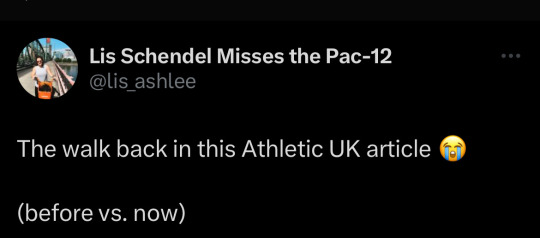
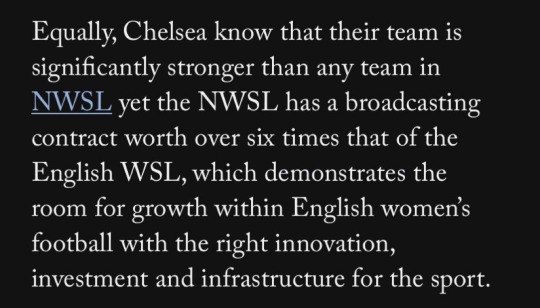
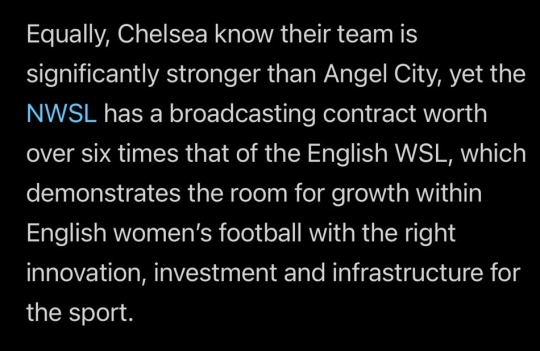
they really said oop my bad we mean angel city only like what 😭😭😭😭
13 notes
·
View notes
Text
I Starred in ‘Cabaret.’ We Need to Heed Its Warning.
New York Times Guest Essay by Joel Grey, Nov. 24, 2024
"This past week marked 58 years since the opening night for the Broadway premiere of “Cabaret” in 1966. At the time, the country was in deep turmoil. Overseas, the Vietnam War was escalating, and at home, our most regressive forces were counterpunching against the progress demanded by the civil rights movement. The composer John Kander, the lyricist Fred Ebb and the playwright Joe Masteroff wrote “Cabaret” in collaboration with the director Harold Prince as a response to the era. The parallels between the rise of fascism in 1930s Berlin as depicted in the show and the mounting tensions of the 1960s in America were both obvious and ominous.
I played the Emcee — the Kit Kat Club’s master of distraction, keeping Berlin mesmerized while Nazism slipped in through the back door. Night after night, I witnessed audiences grappling with the raw, unsettling reflection that “Cabaret” held up to them. Some material was simply too much for the audience to handle. “If You Could See Her,” which has the Emcee singing of his love for a gorilla — a thinly veiled commentary on antisemitic attitudes — ended with the lyric: “If you could see her through my eyes, she wouldn’t look Jewish at all.”
When we first performed it, in Boston, audiences gasped and recoiled. It was too offensive, too raw, too cruel. Producers fretted and the line was changed to “She isn’t a meeskite at all,” softening the blow, yes, but also the impact. I resented the change and would often, to the chagrin of stage management, “forget” to make the swap throughout that pre-Broadway run.
I’m hearing from friends in the current Broadway production of “Cabaret” that the line is once again getting an audible response, but of a different sort. On more than one occasion in the past two weeks — since the election — a small number of audience members have squealed with laughter at “She wouldn’t look Jewish at all.” In the late 1960s, we softened the line because the truth was too hard to hear. Today, it seems the line is playing exactly as the Nazi-sympathizing Emcee would have intended.
My initial assessment, when word first reached me about this unusual reaction, was that these must be the triumphant laughs of the complicit, suddenly drunk on power and unafraid to let their bigotry be known. Now I find myself considering other hypotheses. Are these the hollow, uneasy laughs of an audience that has retreated into the comfort of irony and detachment? Are these vocalized signals of acceptance? Audible white flags of surrender to the state of things? A collective shrug of indifference?
I honestly don’t know which of these versions I find most ominous, but all of them should serve as a glaring reminder of how dangerously easy it is to accept bigotry when we are emotionally exhausted and politically overwhelmed.
The 1960s were a time of social upheaval, but also a time of hope. There was a sense that as a society, we were striving toward progress — that the fight for civil rights, for peace, for equality was a fight we could win. “Cabaret,” with its portrayal of a decadent society willfully ignorant of its own demise, provided a stark counterpoint to that hope. It was a warning against the seductive power of distraction, the dangers of apathy and the perils of looking away when history demands that we look closer.
Now, in 2024, we find ourselves in a different, far more precarious moment. The recent election of Donald Trump to a second term has left many Americans, particularly those who fought so hard against the forces of authoritarianism and hate, feeling drained and disillusioned. There’s a sense that we have seen this show before, that we know how it ends, and that we’re powerless to stop it. Or worse, a sense that even though we are facing dark times, they won’t really affect our own day-to-day lives — echoing the tragically shortsighted assessment of so many European Jews in the 1920s and ’30s.
“Cabaret,” with all its humor, spectacle and tunefulness, has always been both the peanut butter and the pill hidden within. It’s an entertainment that seduces us into distraction. “Leave your troubles outside,” the Emcee implores in his opening number. “In here, life is beautiful.” It’s also a cautionary tale that forces us to confront the perils of falling prey to such distractions.
The current revival cleverly ramps up the seduction, staging the show in a fully immersive, champagne-soaked party environment constructed to beguile its audience. Only when the Nazis finally show up do we see how false our velvet-enrobed sense of security has been. We, too, have chosen not to see what has been directly in front of us.
The democratic election of an authoritarian figure, the normalization of bigotry, the complicity of the frightened masses — none of these are new themes. We have indeed seen this show before, and I fear we do know how it ends. It’s understandable to want to retreat, to find solace where we can, but we cannot afford to look away.
History is giving us another chance to confront the forces that “Cabaret” warned us about. The question is: Will we listen this time, or will we keep laughing until the music stops?"
#naomi posts#please read this#i linked the article in the title but otherwise the whole thing is copy pasted#cabaret
3 notes
·
View notes
Text
"When the tactics of the Spanish-American War showed the wisdom of some semblance of camouflage, blue gave way to khaki [in U.S. Army uniforms] and eventually to the olive-brown tones of Dwight Eisenhower’s famous short jacket. The standard-issue olive drabs, or 'O.D.s,' were openly derided. 'It was a shade that might have reminded an imaginative observer of the color of vomit or even excrement,' the cultural critic Paul Fussell wrote in his 2002 book, 'Uniforms.' After V-J Day, it became existentially necessary for the Army to address its image problem. Olive drab was a drag on morale and a handicap to recruitment, and the mass entry of army clothes to the civilian life, as worn by veterans to tend their lawns or to pump a customer’s gas, further eroded its prestige.
"In 1949, the Office of the Quartermaster General set about stabilizing the army uniform, and its search for a new color may have represented the most extensive development and market-testing process in the history of both apparel and bureaucracy. An advisory committee ruled that a neutral gray-green would be 'flattering to the greatest range of people,' according to a later technical report. A team from the Quartermaster Corps proposed army uniforms to about 15,000 troops in 24 cities [and] quantified the relative enthusiasm of recruits, veterans and officers’ wives[.]
"[...] Phased in between the mid-’50s and early ’60s, the army green field uniform projected “the confidence and readiness of an authoritative military force,” the historian Shelby Stanton wrote in 'U.S. Army Uniforms of the Cold War, 1948-1973.' 'Army green,' Stanton felt, 'complemented the U.S. desire to project the most professional soldiering image toward its Cold War adversaries.'"
Troy Patterson, "How the Army Jacket Became a Staple of Civilian Garb" (New York Times)
#i didn’t even read this article looking for wwii facts and yet!#i want to read a whole book about the cultural meanings assigned to gi uniforms#if anyone knows of anything even somewhat adjacent please do let me know#wwii book club#historical fashion
6 notes
·
View notes
Text
For a year now in the West Bank, Israel has launched a war against Palestinians. While the genocidal assault on Gaza has claimed the lives of tens of thousands, and according to some estimates, hundreds of thousands, the onslaught in the West Bank has ramped up in the form of displacement, the unprecedented expansion of settlements, rampant settler violence and pogroms, economic warfare, mass incarceration, and the launching of a military offensive on centers of resistance across the West Bank. As of this writing, Israeli forces and settlers have killed 743 Palestinians, wounded 5,250, and displaced 5,947. But underlying these numbers is a far deeper reality of Israeli settler encroachment and creeping annexation in the West Bank.
The Israeli offensive in the West Bank is nothing but random, nor is it detached from Israel’s policies in Gaza. It follows a strategy in line with Israel’s stated plans to annex the West Bank and undermine any possibilities for a future Palestinian state.
Although these Israeli policies have been employed by Israel for decades of occupation in the West Bank, observers argue that Israel’s strategy in the West Bank after October 7 has aimed to create a new political reality, heading towards achieving definitive Israeli control over the West Bank.
October 7, 2024
29 notes
·
View notes
Text
the number of times that I've been actively researching a scientific topic in preparation for writing a sci-fi story that incorporates that topic
and then brand new info on that topic is released into the scientific community. while I'm in the midst of reading up on it
is too damn high, and honestly starting to get a little spooky
#this week's example isn't nearly so ridiculous as the time I had to reload the wikipedia article I was in the middle of reading#because Stephen Fucking Hawking had released a new paper *since I opened the wiki article two days earlier*#that changed the whole fucking understanding of the field#that's still the high water mark in my ongoing saga of 'why is science doing this to me I'm just trying to write science fiction'#by comparison this week's is pretty minor#'oh you wanna get back into research for a story that involves a massive solarstorm? HOW WOULD YOU LIKE A MASSIVE SOLARSTORM RIGHT TF NOW?'#this happens to me. so often. I don't even know what to think any more.#at least there are lots of new articles to read and videos to watch I guess???#dear universe: thank you for the science research help. please stop being spooky#or at least restrain your spookiness to spooky action at a distance#or. wait. maybe that's what this is#maybe it's all spooky action at a distance lmao#maybe I should put down the solarstorm research and get back into the quantum physics research#at some point I do actually need to write all these stories#tagtalking#2024 mood#2015 mood#process thoughts
3 notes
·
View notes
Note
lewis said he wanted to make chelsea a ‘diverse club’ 😃😃😃😃😃 whatever that means
literally what does that even mean
#I’m reading an article about it and I’m so 😭#love Lewis#but I’m laughing at him saying he’s ultimately a sporting fan 😭#I don’t really hold that hostility within my personality <- about sports rivalries#this is such a funny piece of lore I’m immediately throwing it out of my memory#“this is a business opportunity’ like I get the optics of why he was saying all the bs but please#he should’ve just kept it at that#I can’t believe there’s a whole article about this 😭
4 notes
·
View notes